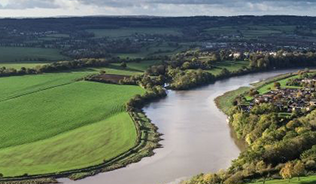Many instruments already exist to support the proliferation of adaptive measures to address these challenges, though the majority are not yet scaled to meet those challenges, tuned towards adaptation as their objective, or operating with reference to the complex systems and interconnected crises which they must be able to address.
Regulatory measures such as European Habitats Regulations, Biodiversity Net Gain approaches, or Nutrient Neutrality requirements have the capacity to embed adaptation throughout the processes most likely to interact with ecosystems. Heuristics like the mitigation hierarchy demonstrate the potential to embed approaches, particularly if they are utilised at the design stage, while metrics and case studies can improve consistency of delivery across projects or scales.
Key challenges can also be addressed more directly, such as setting priority habitats and aligning them with framework-level governance such as land use frameworks or national biodiversity commitments.
Ultimately, individual measures will only be as effective at embedding ecosystem resilience into decision making as the principles, values, and understandings which underpin them. Before any of these approaches can succeed, society must value the inherent benefits of the natural world, not just as an economic asset but for the wider values and sources of wellbeing that it can address.
The more that people imagine themselves to be separate from the natural world, the harder it will be to embed resilience to environmental crises, and the less likely society is to secure the full range of benefits on offer.





